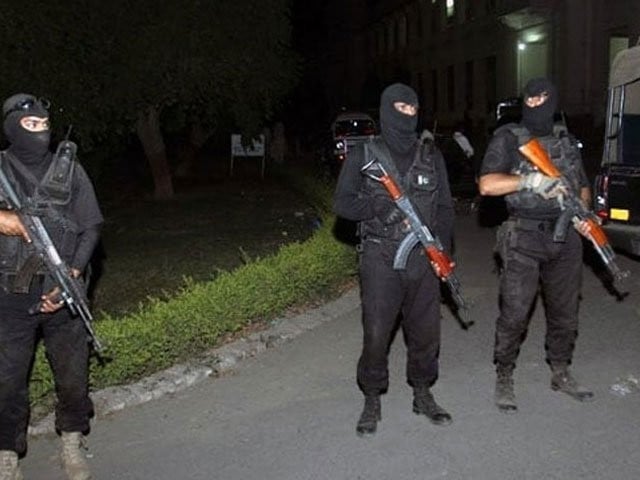Misuse of powers by Pakistan’s counter terrorism officials erodes public trust

The recent arrest of eight officials of Pakistan’s Counter-Terrorism Department (CTD) for their alleged involvement in a kidnapping-for-ransom case has sent shockwaves across the nation.
This incident, emblematic of a deeper malaise within the country’s law enforcement framework, raises critical questions about accountability, ethics, and public trust in institutions tasked with upholding justice and security.
According to local media reports, these officials were accused of abducting two individuals and releasing them only after getting paid the ransom money.
As this case unfolds, it becomes essential to examine the systemic failures that enable such abuses of power and the broader implications for Pakistani society.
The CTD, a specialised wing of Pakistan’s law enforcement apparatus, is mandated to combat terrorism and protect citizens from extremist threats.
Its officials are entrusted with considerable authority, resources, and discretion.
However, the arrest of these eight officers for allegedly orchestrating and executing a kidnapping-for-ransom operation underscores a grave betrayal of public trust.
By exploiting their official positions for personal gain, these individuals have not only committed a criminal act but also tarnished the reputation of the institution they represent.
This incident is not isolated. Over the years, several cases of corruption, extortion, and misuse of authority have come to light within Pakistan’s law enforcement agencies.
The Counter-Terrorism Department, despite its critical role in national security, is not immune to these systemic flaws.
The CTD, intended to serve as a stronghold against terrorism, risks becoming a symbol of unchecked authority and impunity if such actions go unaddressed.
Incidents of this nature undermine public trust in law enforcement, fostering an environment where citizens feel unprotected and exposed to harm.
This erosion of confidence arises from multiple factors.
First, accountability within law enforcement is notably weak, with officers accused of misconduct often escaping consequences due to influential connections or systemic flaws in internal disciplinary processes.
Second, citizens frequently encounter indifference or hostility when seeking justice, discouraging them from turning to law enforcement even in times of need.
This breakdown in trust weakens the social contract between the state and its people.
Such misconduct erodes the moral authority of law enforcement and fosters a culture of impunity that emboldens others to misuse their positions of power.
The problem extends far beyond individual malfeasance.
It reflects a broader, systemic failure to establish robust mechanisms for accountability and oversight within Pakistan’s law enforcement institutions.
Several factors contribute to this crisis:
Weak internal oversight: Internal accountability mechanisms within agencies like the CTD are often inadequate.
Investigations into misconduct are frequently delayed, poorly executed, or influenced by political or personal interests, allowing perpetrators to escape justice.
Political interference: Law enforcement agencies in Pakistan are often subject to political manipulation.
Appointments and promotions are frequently influenced by political affiliations rather than merit, undermining the professionalism and independence of these institutions.
Resource constraints: Chronic underfunding and lack of resources contribute to a culture where officials may resort to corrupt practices to supplement their income.
Additionally, inadequate training on ethics and professional conduct leaves many officers ill-equipped to navigate complex moral dilemmas.
Judicial inefficiency: Pakistan’s judiciary, burdened by a massive backlog of cases and procedural inefficiencies, often fails to deliver timely justice.
This creates a perception of impunity, encouraging further abuses of power.
The consequences of such incidents are far-reaching.
When law enforcement officials, especially those in elite units like the CTD, are implicated in criminal activities, it erodes public confidence in the state’s ability to ensure justice and security.
Citizens, already grappling with daily challenges of insecurity and instability, feel increasingly unprotected and vulnerable.
This erosion of trust creates a dangerous environment where people may hesitate to seek help from law enforcement, fearing further victimisation.
Moreover, such misconduct undermines Pakistan’s broader counter-terrorism efforts.
Public cooperation is a cornerstone of effective counter-terrorism strategies.
If citizens perceive law enforcement as corrupt or untrustworthy, they are less likely to share critical information or support counter-terrorism initiatives.
This creates a vacuum that extremist elements can exploit, further jeopardising national security.
The arrest of eight CTD officials for kidnapping and ransom is a stark reminder of the urgent need for reform within Pakistan’s law enforcement institutions.
Such incidents, if left unaddressed, risk further eroding public trust and undermining national security.
However, this crisis also presents an opportunity to implement meaningful changes that can strengthen accountability, professionalism, and public confidence in law enforcement.
An editorial published in one of Pakistan’s leading dailies, The Express Tribune, suggested a zero-tolerance policy is essential to address such misconduct.
“Law enforcement agencies must implement robust internal accountability mechanisms and allow independent oversight to monitor their actions. Officers found guilty of criminal behaviour must face severe consequences, sending a clear message that corruption and abuse will not be tolerated,” according to the editorial. “Ultimately, the state has a responsibility to ensure that institutions like the CTD operate with integrity,” it added.






